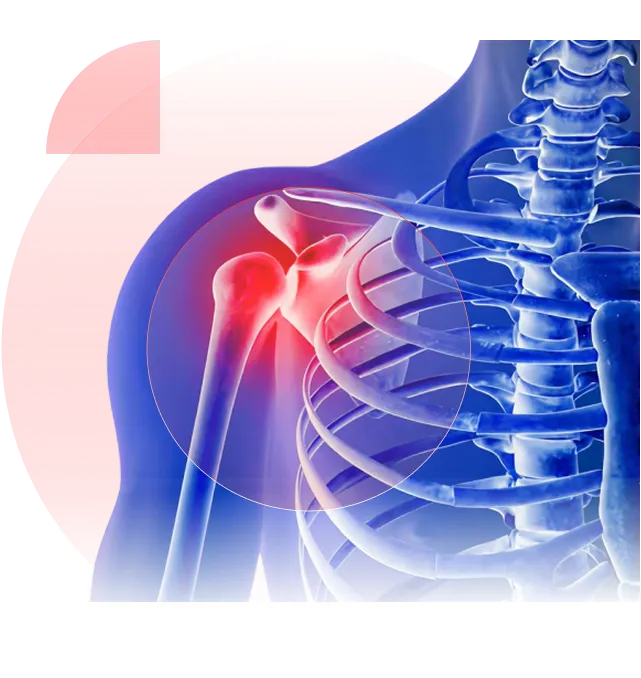Shoulder Injury Specialists in Dallas — Car Accidents, Sports & Falls
Shoulder injuries are often caused by car accidents, falls, or sports trauma. Tendon tears, bursitis, and arthritis make up most cases, but the source isn’t always obvious. Without proper imaging, weeks of ineffective therapy may be wasted. Our specialists diagnose injuries early and direct treatment to the exact problem. Learn more about common causes like Rotator Cuff Tear and Arthritis.

Ache reaching
overhead
Night pain on
affected side
Popping/catching
with rotation
Weakness reaching
behind back

Why Choose Us?
Fellowship-trained shoulder surgeons & pain doctors
Non-opioid first: cortisone, PRP, hyaluronic acid
After-hours athlete clinic
Targeted PT
Subacromial cortisone (fluoro)
PRP · Arthroscopic debridement/bursectomy
Shoulder arthroplasty for end-stage arthritis
Request Your Same-Day Shoulder Pain Evaluation
Don’t wait in pain — our expert spine specialists are available for same-day evaluations.
If shoulder pain follows an accident, sports injury, or limits your ability to lift, reach, or sleep comfortably, don’t wait. Early evaluation prevents small issues from worsening into chronic tears or arthritis. Our specialists at the Arm & Shoulder Hub provide same-/next-day diagnosis and treatment so you can recover quickly and avoid long-term complications.
Yes. Physical therapy is often the first line of treatment for rotator cuff strains, bursitis, and labral injuries. By targeting weak or tight muscles, therapy restores motion, improves strength, and reduces pain without surgery. If therapy alone isn’t enough, options like cortisone injections or PRP can complement recovery. Starting PT early helps patients avoid more invasive care and return to daily activities faster.
You should seek immediate care if you cannot raise your arm, notice sudden weakness, or experience sharp pain after a fall or collision. These signs may indicate a torn tendon, dislocation, or fracture that requires urgent imaging. Our board-certified team uses MRI when needed, and guides patients through next steps on our Rotator Cuff Tear and Shoulder Pain pages.
Partial labral tears and small rotator cuff injuries often improve with physical therapy or injections such as PRP. Larger tears or unstable labrum injuries usually require arthroscopic repair. Our fellowship-trained doctors personalize care using advanced imaging and minimally invasive procedures. Learn more about biologic treatments at NTX Regen Center and explore surgical options on our Shoulder Arthroscopy page.
Getting diagnosed early means faster recovery, less scar tissue, and fewer complications. Delayed care can turn minor injuries into chronic arthritis or frozen shoulder. Our team uses imaging in minutes to pinpoint the problem, then builds a plan with therapy, fluoroscopy-guided injections, or minimally invasive surgery if needed. Visit our Shoulder Pain page for proven next steps.
Yes. Cortisone injections can reduce inflammation for immediate relief, while PRP supports long-term tendon and joint healing. Both approaches are non-opioid-first strategies that restore motion and reduce downtime. Our specialists use fluoroscopy-guided injections for accuracy, ensuring medication or PRP is delivered precisely to the injured area. Learn more about your options on our Therapies page.